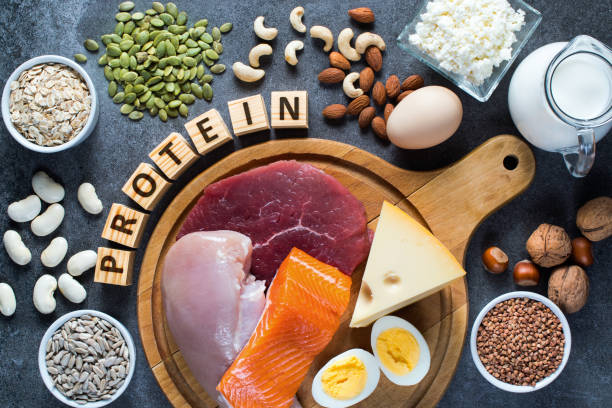On Wednesday, May 15, 2024 from 5:30pm - 6:30pm, we are hosting a FREE Foot Pain Workshop [ Online
] - Click here for more info
February 27, 2024

Protein is a powerhouse nutrient, playing a crucial role in building muscle, aiding in injury recovery, supporting weight loss, and offering a host of other health benefits. Its importance in our diet cannot be overstated, especially for those looking to enhance their physical health and overall well-being. Let’s dive into why protein is so essential, particularly for muscle building, injury recovery, and weight loss, along with its other remarkable benefits.
Protein is often hailed as the building block of muscles. Engaging in strength training or any form of exercise that stresses the muscles leads to tiny tears in muscle fibers, which the body repairs and rebuilds stronger than before. This process is known as muscle protein synthesis, where protein plays a starring role. Consuming adequate protein ensures your body has the necessary amino acids to repair and grow muscle tissue, making it essential for anyone looking to increase muscle mass or enhance muscle tone.
When it comes to healing from injuries, protein takes center stage again. After an injury, the body’s demand for protein increases to repair damaged tissues. Adequate protein intake provides the body with the amino acids needed to build new tissue, reduce recovery time, and ensure a stronger regrowth of muscle fibers. This is particularly crucial for athletes or individuals recovering from surgeries or wounds, as a protein-rich diet can significantly impact the speed and quality of recovery.
In the realm of weight loss, protein is a key ally. High-protein diets are often more satisfying, making you feel fuller for longer and reducing the likelihood of overeating. Protein has a higher thermic effect than fats or carbohydrates, meaning your body uses more energy to digest it, boosting your metabolism in the process. By preserving muscle mass, even as you lose fat, protein helps maintain a healthy metabolism, essential for long-term weight management.
The benefits of protein extend far beyond muscle building, injury recovery, and weight loss. Here are a few additional reasons to ensure you’re getting enough protein in your diet:
The amount of protein you need depends on various factors, including age, sex, physical activity level, and health goals. The general guideline is 0.8 grams of protein per kilogram of body weight for the average adult, is often suggested to be insufficient for optimal health. It could be enough to life but not necessarily thrive. More recent studies show that people should consider closer to two grams per kilogram, or about one gram per pound of body weight. It’s always a good idea to consult with a healthcare professional or a registered dietitian to determine your specific protein needs.
Incorporating protein into your diet can be easy and delicious. Sources of high-quality protein include lean meats, poultry, fish, dairy products, eggs, legumes, and plant-based alternatives like tofu and tempeh. For those on the go, protein shakes and bars can offer a convenient way to meet your protein needs. Just consider the total amount of sugar and calories when choosing what may be the best for you.
Protein is an essential nutrient that supports muscle building, injury recovery, weight loss, and much more. By understanding its importance and ensuring you’re consuming adequate amounts, you can support your body’s needs, promote overall health, and achieve your fitness goals. Remember, a balanced diet that includes a variety of nutrients, along with regular exercise, is the key to a healthy lifestyle.